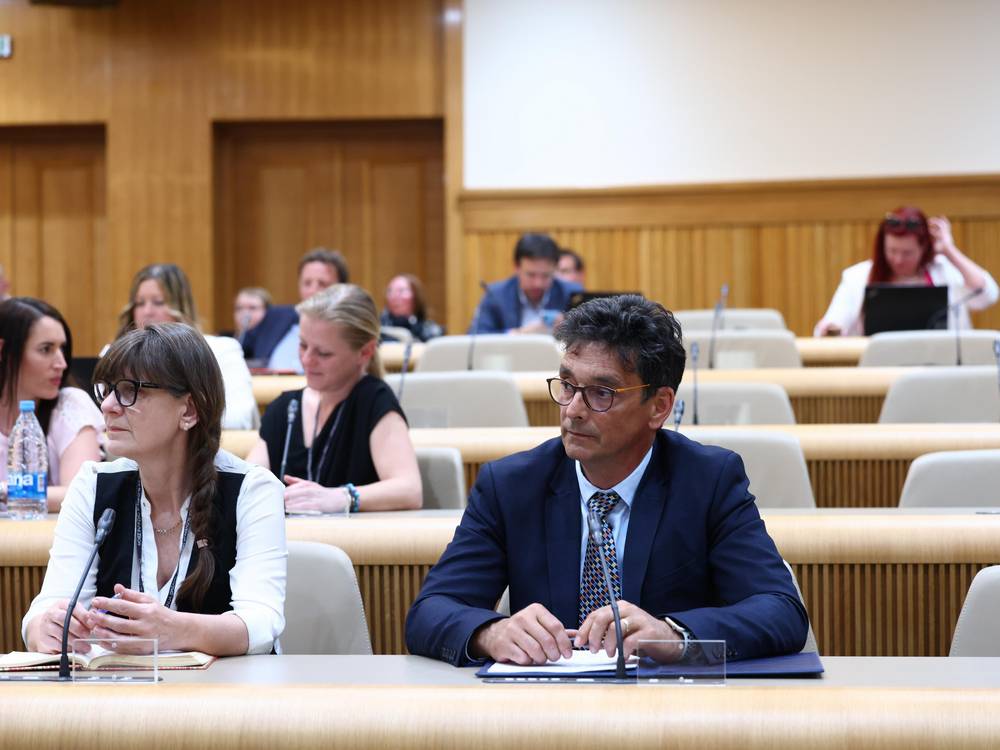On 15 June 2023, Human Rights Ombudsman Peter Svetina presented some of the findings of the institution of the Ombudsman connected to the question of re-evaluation of entitlement to personal assistance at the 8th meeting of the Commission for Petitions, Human Rights and Equal Opportunities. “With the Personal Assistance Act, which entered into effect in 2019, Slovenia took an important step towards more active inclusion of people with disabilities in society. Unfortunately, it did not take long before we at the Ombudsman’s office started receiving numerous complaints pertaining primarily to non-recognition of certain costs and lengthy decision-making procedures at the second instance as well as to reducing the scope of the already recognised right to personal assistance without the possibility of using a legal remedy,” initially stated Ombudsman Svetina.
He added that he has several times warned against the problem of ambiguity of the criteria and meeting the criteria for personal assistance, as it is, or is not, evident from the decisions and appended expert opinions. “An unreasoned decision is an infringement of human rights. People cannot make an effective challenge by legal means since they do not know where their positions differ from those of the experts. Regarding the problems with explanations in the decision-making process on the right to personal assistance, the competent ministry accepted our calls, but a solution is not yet in sight,” explained the Human Rights Ombudsman.
In the Ombudsman’s belief, the re-evaluation of the entitlement to personal assistance is just as controversial. “The competent ministry stopped the re-evaluation procedures ex officio, but shortly before the suspension, a list of the names of all those who were directed to the re-evaluation process in the first round was created. We at the Ombudsman’s office dealt primarily with the question of how and, above all, why the list was made, but unfortunately did not get any answers. If this list was indeed made due to larger costs of financing personal assistance than expected, then we can be afraid of the society in which we live. The decision to cut costs on the back of the most vulnerable people is discriminatory, unethical, and undignified,” criticised Svetina.
With the system of personal assistance the state has established a standard that cannot now be ruined and lowered. From the perspective of the Human Rights Ombudsman, what the service is called is completely unimportant, but it is important that all individuals with comparable problems are offered comparable forms of help. “In this respect, we at the Ombudsman’s office will not hold back from initiating the necessary procedures. It is certainly also bad that the regulation of the field is scattered over several or numerous regulations. Thus, we at the Ombudsman’s office expect that after the completed legislative reform a system will be established that will provide all individuals with comparable needs comparable forms of help and will be completely assembled from the Long-Term Care Act and the Personal Assistance Act. These two acts together have to ensure that individuals do not have their rights violated,” added Ombudsman Svetina.

![[Translate to English:] Varuh Svetina na Komisiji za peticije, človekove pravice in enake možnosti [Translate to English:] Varuh Svetina na Komisiji za peticije, človekove pravice in enake možnosti](/fileadmin/_processed_/d/a/csm_Varuh_na_komisiji_junij_1_0cc0b2d88b.jpg)